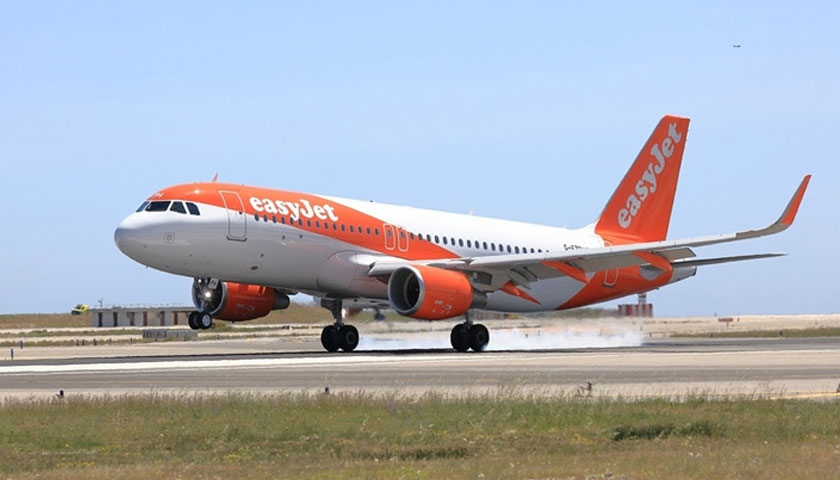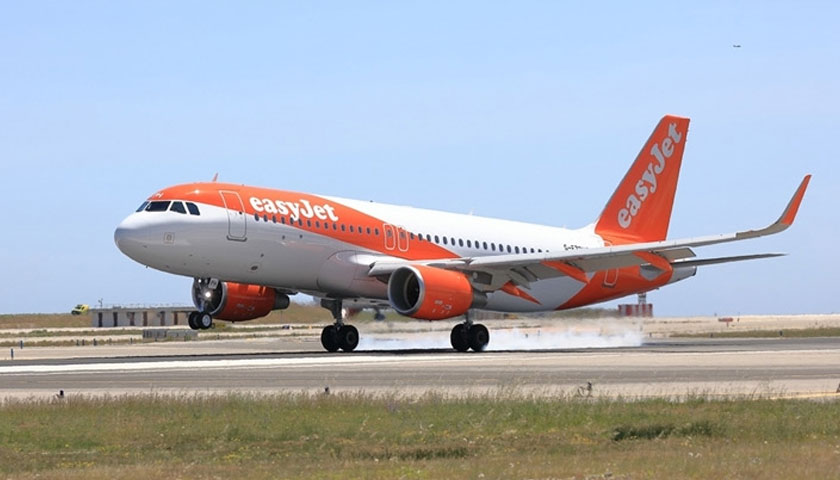easyJet has launched the aviation world’s most ambitious plan to achieve net-zero carbon emission by 2050, in a new roadmap revealed by the airline today.
The plan will see the airline reach net-zero through a series of elements, with the ultimate ambition to be flying on zero carbon emission hydrogen-powered aircraft. easyJet is already working with partners across the industry, including Airbus and Rolls-Royce on several dedicated projects to accelerate the development of zero carbon emission aircraft technology.
This is complemented by carbon removal technology to physically remove carbon from the atmosphere and Sustainable Aviation Fuel (SAF) as an interim measure, as well as building on work the airline is already doing to make its everyday operations ever-more fuel efficient and advocating for airspace modernisation, to reduce the use of fuel by flying more direct routes.
The announcement comes as new research by the airline has revealed that over three-quarters of the public (76%) think that companies need to urgently set out how they will achieve net-zero this century and demonstrate how they are operating more sustainably.
The same study showed that 82% of Brits think that zero carbon emission flying, for example on hydrogen aircraft, is the best option to truly decarbonise aviation.
60% of Brits are excited about the prospect of flying on zero carbon emission aircraft like hydrogen planes, with four in 10 confident they will see zero carbon emission planes within the next 15 years.
Johan Lundgren, CEO of easyJet, said:
“Challenging the status quo is in easyJet’s DNA. Today, we’re the first airline to outline an ambitious roadmap in which zero carbon emission technology plays a key role to take us to net-zero carbon emissions by 2050. And 82% of the British public agree with us, believing that zero carbon emission flying is the best approach to truly decarbonise aviation.
By implementing our roadmap step by step in the years to come, we’re committed to ensuring there is a sustainable future of aviation for the benefit of the next generation and our planet.”
The nationwide study of 2,000 British holiday makers, conducted by easyJet, revealed that 78% of us will chose an airline based on their sustainability credentials when travelling in the future and 70% would commit to a ‘zero carbon emission’ holiday if it was available to them.
76% of travellers today actively seek to reduce the impact of their travel plans on the environment. These plans include taking a European holiday over a long-haul flight (33%), choosing an airline which does more to fly sustainably (such as operating efficiently, with a high load factor and a young fleet) (30%), or choosing an eco-friendly hotel (30%).
The Top 10 actions Brits undertake to help the environment when flying abroad are as follows:
- Recycling food waste and plastic according to local guidelines (35%)
- Taking a holiday in Europe to reduce emission compared with long-haul flying (34%)
- Choosing an airline which does more to fly sustainably (31%)
- Choosing an eco-friendly hotel or accommodation (30%)
- Choosing to walk and cycle when travelling around local areas (28%)
- Eating and drinking local produce (such as local wine) (25%)
- Limiting energy use in accommodation (such as turning lights off) (24%)
- Using your phone instead of printing off flight and hotel bookings and itineraries (21%)
- Conserving water by showering less (17%)
- Avoiding damaging recreational activities to the local area (13%)
Additionally, 84% of Brits care more about doing their bit for the planet while travelling today than they did 10 years ago. And whilst travelling abroad, over a third of Brits (38%) feel it’s important to get to know the local community when visiting somewhere new. Over half (56%) of travellers think it’s important to support local eateries, and 32% ensure they try and speak to the locals about their community and culture when holidaying in foreign climates.


